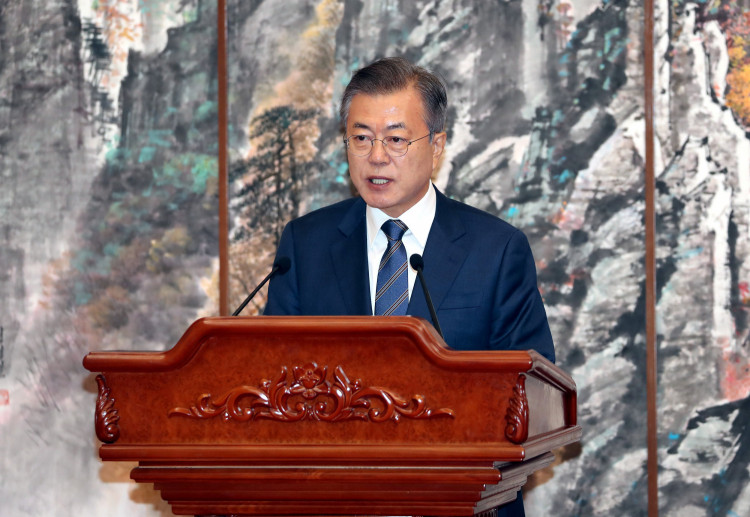US President Donald Trump told the press on Tuesday that the revamped trade deal Washington has negotiated earlier with South Korea is now ready to be signed probably at the upcoming United Nations' 73rd General Assembly.
In a statement released during a press briefing, Trump personally confirmed that the trade agreement with the SoKor government has indeed undergone some revision. It is now in its final version following the renegotiation process that took place backstage, a Reuters report said.
What's left to be done to finally cement the pact is the signing which, according to the president may happen at the United Nations summit or shortly after the event.
Trump added that the earlier trade pact signed between Seoul and Washington was a bit unfair for the US. He is, however, satisfied with the outcome of the revised version which he now considers as a fair deal.
Meanwhile, South Korea's trade ministry also confirmed that the Moon Jae In government is already preparing for the possible signing during the General Assembly next week.
One ministry official said that the SoKor administration is hoping that the new trade pact will immediately take effect this January of next year. Still, the final schedule of implementation depends on what the Korean parliamentary has approved of.
According to the report from France 24, the previous US-SoKor trade deal allowed the increase of exportation of US auto parts. Other earlier provisions also included the extended tariff on pickups manufactured in South Korea and the delimitation of Korean steel importation.
Trump reiterated that this old pact with South Korea is unfair on both sides.
Trade Pact Revision
A report from this site revealed details of the changes made on the 2012 deal. One of the newest features cited in the revamped agreement includes the extension of the elimination of duties for South Korean trucks up to 2041. From 25,000 US-made vehicles, the number of permitted units to be made per year in South Korea is now doubled to 50,000.
Other new provisions attached to the deal are the expansion of eco-credits for South Korea, the disbursement of Premium Pricing Policy for Global Innovative Drugs in South Korea, as well as addressing the concerns regarding how the Asian nation conducts origin verification audits.
As pointed out by the publication, both the auto industries of the said nations are agreeable to these recent developments. The domestic industry in the US will particularly draw huge benefits from these changes.






